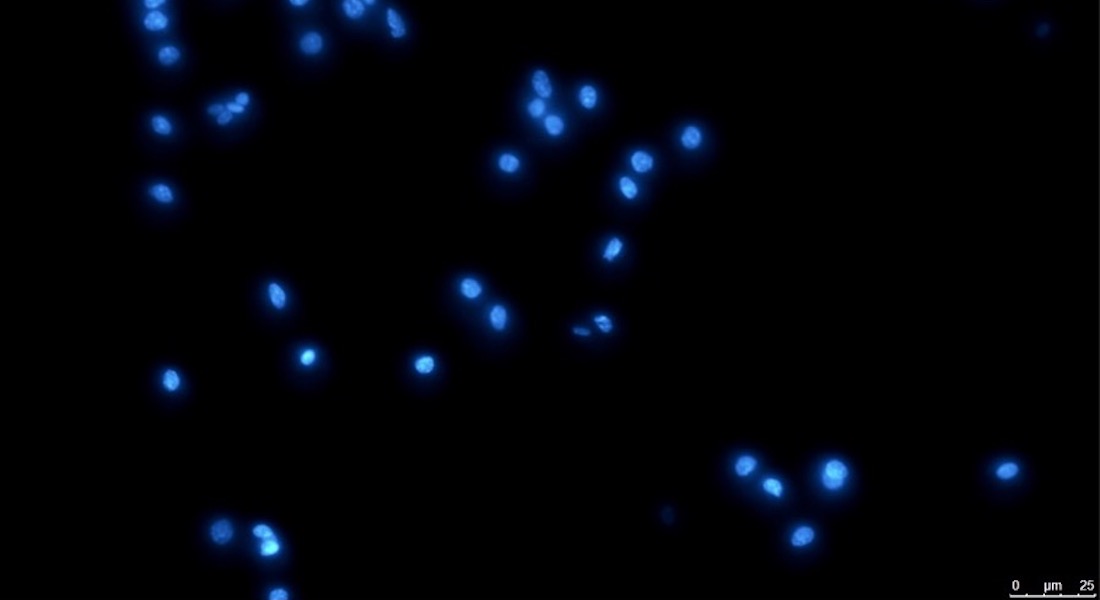One year, five Marie Skłodowska-Curie Actions fellowships
Orchids, toads, 3D folding of DNA, the genomic consequences of social structure, and squirrel hologenomics are the five research fields that researchers at the Center for Evolutionary Hologenomics (CEH) will investigate thoroughly in the years to come. This is due to five researchers at CEH excitingly having received Marie Skłodowska-Curie Actions postdoctoral fellowships - great news for the centre and its emerging research.

It is big news for CEH that this year a total of five researchers from the centre have been awarded a Postdoctoral Fellowship from the Marie Skłodowska-Curie Actions Foundation (MSCA). As the objective of the fellowship is “to support researchers’ careers and foster excellence in research” it is exciting to see where this opportunity will take our five researchers as well as what potential new discoveries will be made.
The five researchers having received the MSCA fellowship are Ida Hartvig, Isolde Van Riemsdijk, Juan Antonio Rodriguez, Bárbara Parreira, and as the last person is yet to be determined, it is represented here by principal investigator Antton Alberdi.
Orchid hologenomics
Ida works on orchid-microbiome interactions within the hologenomic framework. She describes the opportunity to develop her work, given by the MSCA fellowship, as “unique”. Her goal with her fellowship “is to decipher the importance of plant microbiomes in the adaptive and evolutionary success of plants, using orchids as an example. I’m also excited about the training part of the program and look forward to improving my skills in bioinformatics and university teaching.”
Fungal disease in toad populations
Isolde’s research is concerned with “a devastating fungal disease that kills whole populations of toads and salamanders worldwide." The study will take place in an area where two different species of toads meet and mix in a hybrid zone, as "the ecology of the toad species and fungus are tightly linked to type of pond they live in." Isolde says that with her fellowship, she “will look into how this ecological interaction influences the occurrence of the disease in the hybrid zone, the transfer of certain genes, and how this influences the skin microbiomes of the toads, which should play an important role in the outcome of the disease.” Just like Ida, Isolde uses the word “unique” regarding her fellowship, stressing that “this is a unique opportunity for me to show that I can independently lead a research project.”
Identifying genetic variation in 3D
The research project that Juan will lead, takes its starting point in the fact that in eukaryotic cells, a ~2-metre-long DNA thread must fit inside a 10-μm-sized cell nucleus. Juan explains how this “would be analogous to folding a 42 km thread inside a tennis ball” and therefore, “this DNA packaging should follow very specific patterns to condense all the information and regulate gene expression.” On the basis of this, Juan questions how variable this 3D folding can be. “Using chicken as my species model, I will try to characterise the variation in 3D folding of genomes and how this may relate to genomic sequence variation. If successful, this can advance the way we interpret sequence information, by considering the consequences it may have at the 3D level, and their manifestation of physical characteristics of the individual.”
The genomic consequences of social structure
Bárbara’s research is on “the importance of social structure for the genetic diversity and survival of species.” The expected outcomes of the project “will reveal fundamental social aspects - mating systems and spatial relationships - that are part of the evolutionary dynamics of species. This will be especially important to reveal important fundamental aspects for the ability of species to survive environmental changes.” Bárbara describes having received the fellowship as an “outstanding opportunity” and says that she is “very happy with this MSCA fellowship award that will allow me to join the Globe Institute, work in close collaboration with researchers and acquire new skills.”
Squirrel hologenomics
The fifth research project that has received a MSCA fellowships is a hologenomics project “on how squirrels adapt to humanised environments through the joint action of their genomes and the combined genomes of their gut microorganisms,” says PI Antton. “We have already collected samples from red - native species - and grey - invasive species from the US - squirrels in anthropisation gradients in northern Italy, along with very rich metadata about the environment and the animals’ health conditions and behavioural profile - funnily enough called “personality” by the experts.” On the basis of this data, Antton says, that “the role of the researchers will be to generate multi-omic data and to integrate it with health and behavioural data to understand why grey squirrels have a much better capacity to adapt to humanised environments than red squirrels.”
It's safe to say that we are excited to follow all five projects and looking forward to seeing what interesting new findings our researchers will reveal.
Contact:
Associate Professor Antton Alberdi
